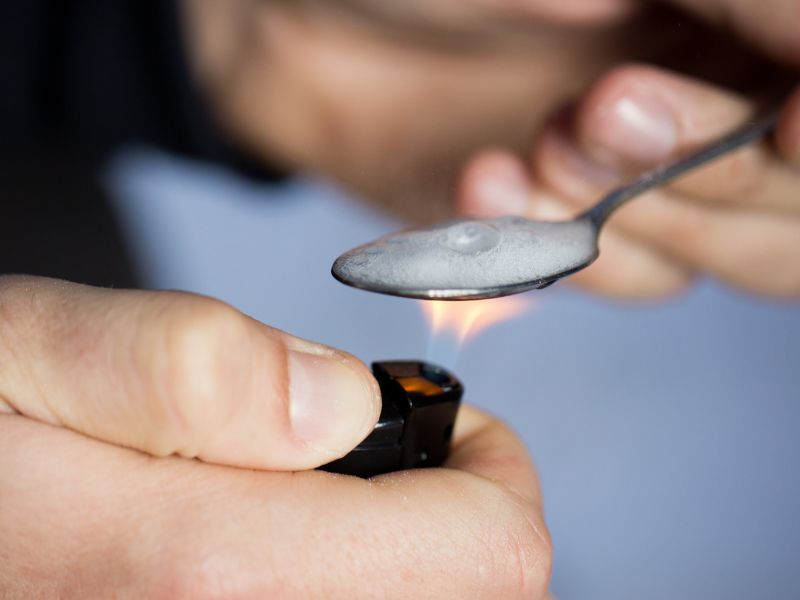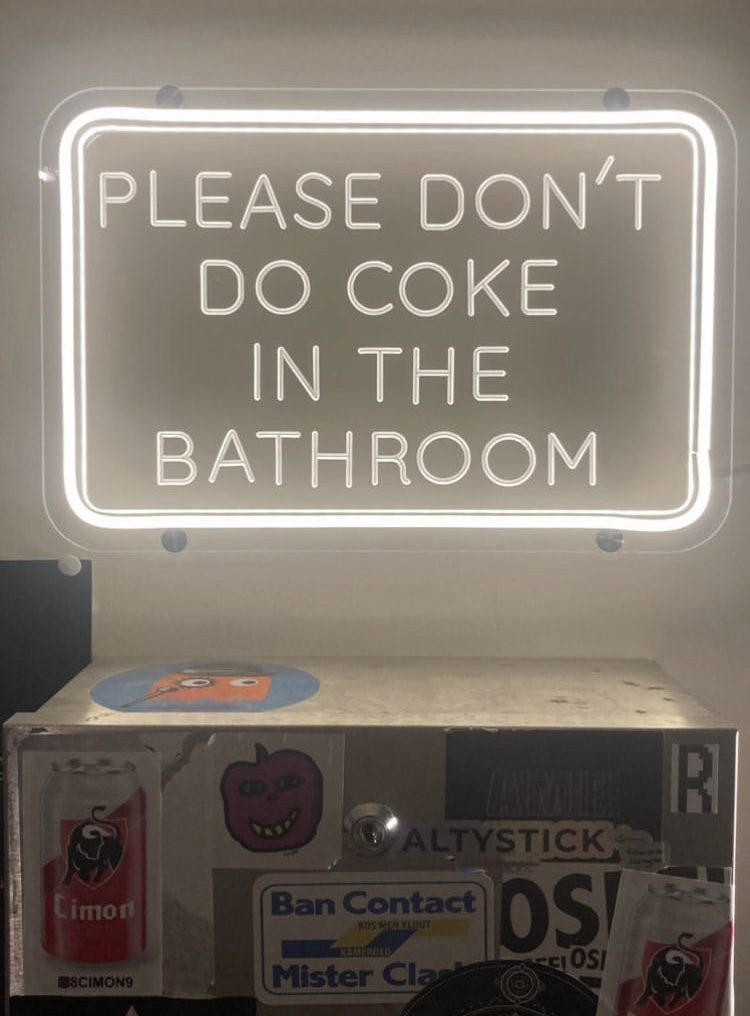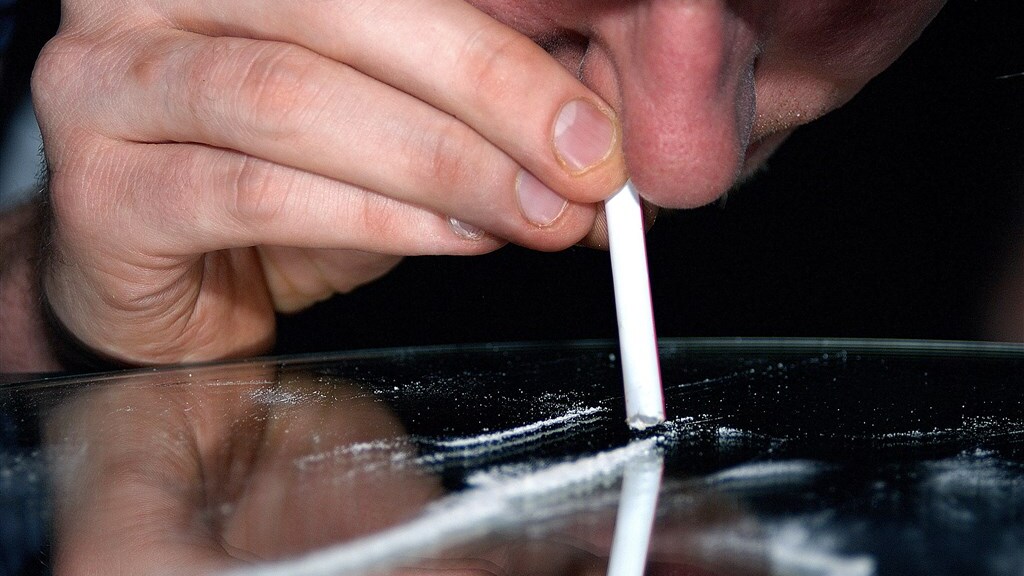The recent surge in the use of crack in Brussels, notably around parts of the city centre, distracts from the growing prevalence of middle-class cocaine use, leading some experts to call for health solutions not just for addicts but society as a whole.
Cocaine has surged in prominence across all levels of Belgian society. Tests of sewers conducted by the EU drugs agency (EMCDDA) in major Belgian cities reveal extensive cocaine consumption. Cocaine use can be traced by analysing untreated sewage.
While testing points to Antwerp as Europe’s biggest cocaine users (2,381 milligrams of cocaine per 1,000 people per day), Brussels ranks fourth for cocaine consumption (985 milligrams per 1,000 people, per day).
The latest survey conducted by Belgian national health agency Sciensano highlighted a 67% increase in self-reported cocaine users between 2013 and 2018. In Brussels, 3% of those surveyed openly admitted to using cocaine within the last year – more than double the national average. Anecdotal evidence suggests that the statistic is likely much higher.
Growing market
The price of cocaine has evolved greatly: from being an expensive commodity used almost exclusively by the wealthy, the drug has become widely available at much lower prices.
Explaining the drug's progression in Belgium, Éric Husson of Project Lama told The Brussels Times: "In the 80s, it cost around €100-150 per gram. It was very expensive and difficult to obtain. In the 2000s we saw the price gradually begin to decrease across Europe. Today a gram of powdered cocaine can cost €40-50."
Established in 1983, Project Lama is a multidisciplinary therapeutic drug addiction centre with locations across Brussels, notably in Anderlecht and Molenbeek, where the problem of substance dependence is particularly acute. The centre supports around 1,500 drug addicts across the capital and is at the forefront of the Brussels crack pandemic.
Crack, a "freebase" purer form of cocaine which is smoked by the user, is fundamentally the same chemical as cocaine that is snorted. However it is sold in smaller, cheaper, and more concentrated doses, known as flashes, for as little as €10.
Crack cocaine users are much more visible due to the drug's stronger habit-forming potential. The powerful and potent high comes on much faster than for powder cocaine but the high is relatively short-lived, leading users into a dangerous cycle of binge consumption to maintain their high. This often leads to addiction.

Crack cocaine. Credit: Canva
To explain media attention towards the crack pandemic gripping Brussels, Husson evokes French-American sociologist Phillipe Bourgois who notes that while powder and crack cocaine users both consume the very same chemical, crack cocaine users face far greater social stigma.
"[Bourgois] says that it’s a way of pointing the finger at one audience more than another. You see that in Brussels. Crack is also cocaine…The very poor can buy their very cheap flash by going to Gare du Midi or to Yser or Ribaucourt. In these places, you’ll never find someone who works for the European Institutions."
While poor and precarious cocaine users are forced into dangerous neighbourhoods to buy their fix, facing much greater social prejudice and pressure in the process, wealthier powder cocaine users benefit from increasing public indifference, driven by the drug's abundance across the country. But Husson warns that the risk of addiction is the same.
Brussels’ hidden addicts
The face of addiction is not always so apparent. Cocaine addicts often wear a shirt and tie, enjoy an active social life, and are high achievers. Unlike other drugs such as opiates, cocaine users are typically able to stagger their consumption, consuming exclusively in the evening or at weekends out of sight of prying eyes.
"It's a product which, for the middle-class, is very in line with their values: performance, awareness, connectivity to others… It’s a product that facilitates contact, that keeps people awake. It’s not like heroin, which tends to put you to sleep, isolate you from others… cocaine is very addictive because it can correspond quite well to a social life."
"When the user is working, they feel like they can manage their consumption for a very long time. You might consume cocaine only in the evenings, on weekends, and abstain from using it during the day. It’s not like heroin where you have a physical craving that sets in during the day."

The interior of a bar in Brussels. Credit: The Brussels Times
But what starts as sustainable consumption can quickly escalate, leading users to one of the capital’s addiction treatment centres. Husson notes that it can often be that a romantic breakup or a professional failure leads these users to a point of dependence which might eventually require help from a specialised service.
Especially among young male adults, Husson affirms that cocaine use is widespread in Brussels, typically taken in the "Horeca context": in restaurants, nightclubs, and bars. Many will be familiar with long lines for bathrooms in bars and nightclubs.
New approaches
Husson calls on the city's health authorities to change the lens through which drug addiction is viewed and argues that health policies must be adopted globally instead of focusing exclusively on the most visible and socially excluded drug addicts. Decriminalisation, he posits, may offer a pathway to harm reduction and safer drug use.
"It is vital that the specialised sector develops strategies for the general population, both geared towards prevention or health promotion to remind people cocaine use – even casual – comes with risks."
Related News
- Sedatives and antipsychotics: 'Worrying' number of people on psychopharmaceuticals
- Belgian Government announces new measures to tackle situation at Brussels-Midi station
This approach is echoed by experts in the United States: the US Surgeon General advocates a global approach to substance abuse in health policy, focusing on reduction solutions for substance use across society, rather than treating addiction as it occurs.
Similarly, the UN calls for states to "eliminate stigma and discrimination towards individuals with substance use disorders" and "address substance use disorders as public health problems."
Project Lama endorses a transition towards the Portuguese model of drug control, which decriminalises the possession of most drugs instead shifting the focus onto public health and addiction management. Husson says that it is necessary to regulate and control drugs, removing them from the hands of violent mafias.

